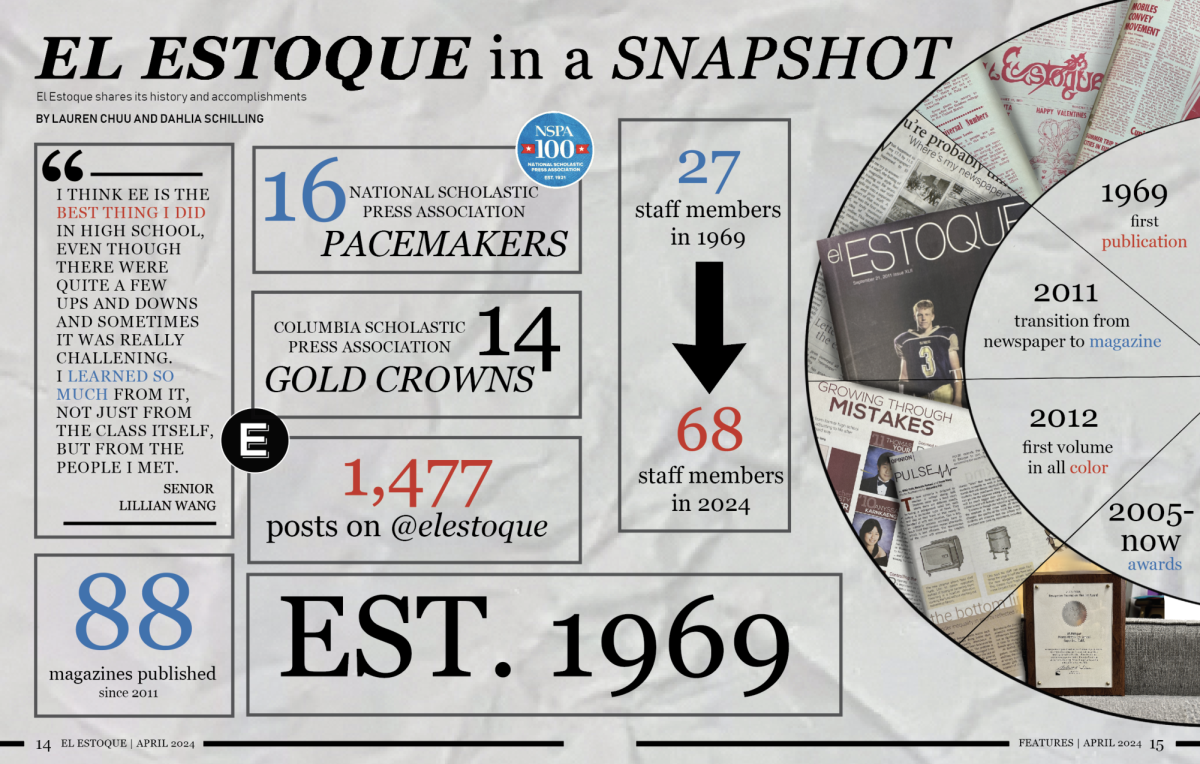Over the years, physics teacher Sushma Bana and the other AP Physics teachers have emphasized a more simplified grading system that focuses more on improving student learning of the content rather than other categories such as participation and attendance. The current grading system that the AP Physics classes use is divided into strictly summative and formative assessments. With this grading system, Bana says although things like time management and engagement are important, in the end, the grade that is on the transcript should reflect the student’s knowledge and not so much as the amount of times they were tardy or asked for homework extensions.
Senior Iniyaa Suresh has a different opinion, pointing to the grade distributions present in some science classes — where the tests can weigh up to 80% of one’s grade — higher compared to other classes. Although she understands that classes such as AP Physics 1 are meant to simulate a college class, which tend to have fewer exams with more weight, Suresh also explains that it may detract from some students’ learning experience.
“I think it puts more pressure on the students to perform well on the test,” Suresh said. “So while that might mean studying more and trying to do better on those tests for some students, for others, they might just try to do as many assignments and memorize the model of different problems just so they can score better, rather than trying to conceptually understand the problem.”
However, despite the fact that participation is not a requirement in the gradebook, Bana still believes collaboration is essential to improving as a student and learning in a more supportive and cooperative classroom environment. The seating arrangement in Bana’s class — and many other physics classes — reflect this push to increase student collaboration.
“Supportive classroom culture is really important in supporting the grading practices, which in turn creates a kind of an optimum environment for learning,” Bana said. “So grading practices in isolation don’t work. It has to be grading practices plus supportive classroom culture where students work collaboratively — they depend on each other, learn from each other and do problem solving together.”
Supportive classroom culture is really important in supporting the grading practices.
— Physics teacher, Sushma Bana
Suresh also draws attention to the paradoxical thinking of some grading systems. For example, most AP classes at MVHS are graded on a 50% curve, where any score above the median receives an A. Although she doesn’t definitively believe it’s a good or bad grading system, Suresh highlights that it may give students a skewed perspective. Many students may desire a high curve, because it means their resulting grade may be higher than expected. However, a higher curve means that overall, the class had a worse grasp on the topics being tested, thus students might hope for an outcome that indicates less learning has occurred.
On the other hand, Fremont High School English teacher Stephanie Fujii emphasizes a non-traditional grading system for her Honors American Literature course, focusing much less on the grades and more on improvement. Fujii does not use letter grades or points but rather a descriptive paragraph-length description for each stage of growth or a letter grade. The idea for this type of grading originated when Fujii had read a book called “Pointless” by Sarah Zerwin, whose ideas resonated deeply with her. For Fujii, focusing more on a holistic approach can prioritize learning over grades and provide useful life skills beyond just the course.
“You look at the whole picture with this grading system, which I think benefits students a lot more,” Fujii said. “It requires a greater deal of reflection and self awareness, which I think are essential life skills to be able to evaluate your own performance and to be able to accurately assess how you’re doing is super powerful, not just in the classroom, but even in a relationship dynamic or in a job. And so I think those are huge benefits that a traditional grade scale does not offer.”
Fuji explains that this type of grading system — while potentially frustrating for students at first — can open up greater possibilities for students to actually interact with their work and identify areas of growth rather than simply treating an assignment or an essay as a letter grade. The process of reading comments and feedback that Fujii adds is an active learning strategy that doesn’t revolve around desiring a specific grade percentage.
“When you look at Schoology, it’s much like a narrative story of learning,” Fujii said. “I have comments, I have words, I have language, I have descriptions. And so even as a parent, you can look into your student’s grade book and read about what they’re actually doing and producing and how they’re showing their thinking, which is something that you cannot see in traditional grading systems. Even if you’ve got all A’s on everything, that doesn’t actually tell you anything about what the student’s doing or what they’re producing.”
However, ultimately, Suresh highlights that grades still play an important role in how she learns. For her, whether or not they make a positive or negative impact, grades are her learning experience.
“It’s like a self-fulfilling prophecy in the sense that if I do well, I want to keep doing well, so I put in more effort, and I think that because of that I perform better,” Suresh said. “Whereas if I’m performing badly, or if I’m performing less than ideally, I get demotivated, I put in less effort, and then I perform even worse. So I think that’s definitely impactful.”
Correction: [3/8/24, 1:16 p.m.], [For the description of Fujii’s grading system, it was written that a paragraph length description is found on each assignment or essay, when the descriptions were actually for a letter grade or stage of growth.]
























